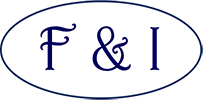National Equine Forum Report
Lord De Mauley opened proceedings on the Defra View to develop a data base by the end of the year mainly aimed at preventing unsafe meat getting into the food chain. He spoke of the current bill now going through which will enable local authorities to go on to private land to retrieve fly grazing animals and the ability to destroy them after 96 hours. He talked of the need for a quick response to bio-security measures which will be helped by the data base, the tripartite review and the china export protocol.
Questions were raised about the equine export trade, barefoot shoeing and the difficulty of owners updating passports. How was this to be enforced? Should it be the owner or keeper who is responsible for this? The racing world would like the latter but that would be difficult for the rest of the horse world. A question was also raised about riding school rates and it is hoped that their rates can be assessed on the percentage of education / commercial usage to bring them more in line with colleges.
Continuing the welfare theme Jeanette Allen and Louise Kemble talked of the need for higher passport standards. They introduced the Election Equine Manifesto covering improved welfare, British trade and increased participation [see link on BHS website] which has been sent to all government departments. Please ensure your PM know about this and look at the Equine Sector Health and Welfare Strategy website.
Steve Gale, an animal welfare officer talked of the difficulties of implementation and enforcement of the animal welfare act. It is not a statuary obligation and the 1971 act is not fit for purpose, the new act should improve local authorities’ powers as discussed earlier. He outlined how the North East Equine Group was dealing with the problems in a coordinated manner, maybe this model could be run out over the rest of the country.
Hopefully the new bill with improved micro chipping and data base will make it easier to trace owners.
The panel discussion continued the theme of ID,location and traceability of horses, that this should be made a statuary requirement. There is an EU requirement that an equine data base must be in place by 2016, but how is this to be done? Passports need to be more owner friendly and vets encouraged to see passports on all visits and record when horses are destroyed, possibly by an app on their phones. The question of a register of where horses are kept is a difficult one, but is needed as a location indicator, if attached to a license it would be expensive, there were no suggestions as to how this will be achieved.
HRH The Princess Royal concluded the morning session acknowledging the work of the forum. She was struck by the Equine Manifesto. She commented on the difficulties of off road riding provision due to the insurance problems for landowners and the EU regulations which do not allow riding on field margins. She suggested the equine data base should learn lessons from how the agricultural industry deals with animal movements. She posed the questions of whether horse owners should be licensed then went on to talk of the extraordinary successes of the British Equestrians over the last year in such a variety of disciplines. She concluded by presenting the Sir Colin Spedding Award to Paul Richard Grieves for his contribution to the racing industry.
The afternoon session started with two presentations on the topic of young person’s [under 18] education and the complexity of courses, awarding bodies and the terms linked to education. They talked of how the majority of college students were not intending to go into the equine industry, only doing courses to gain points to enter higher education.
Employers are not doing well as these courses do not provide what is required by the industry. It is hoped that the new Equestrian Trailblazer Apprenticeship being led by Trent Park will help resolve this issue. There was discussion why the colleges do not help students find jobs as is done by the racing schools and other college courses.
Then followed short presentations on a variety of topics.
Lyn Peterson talked of the success of the BHS Horse Accident Log, which was set up in 2010 as a new way of capturing data for accidents and incidents from RTA’s to low flying aircraft and was providing useful information to police and other organisations. .Although only a small number of events are being logged it’s a good beginning. So encourage all to use www.horseaccident.org.uk.
Jane Nixon introduced the British Breeders Network which will be set up by the end of March to cover non racing horses. Visit www.britishbreedersnetwork.org.
Will Lambe talked of the economic impact of British racing which is the second highest attended sport in the UK. He talked of the change from the Levy to the Betting Right which will provide a more sustainable funding mechanism for the industry.
Clare Williams talked of the BETA national Survey, how in store shopping is still popular in the equine world, that the number of riders has declined due to costs access and time, there are about half a million horse owners.
From a safety point of view one in two riders will have an accident at some point and one in seven will have had one in the last year.
Finally, Andrew Finding talked about the website www. hoof ride.co.uk to encourage increasing participation through social media and the Sport England campaign “This Girl Can”.
It was very much a horse welfare day with a lot of problems to be solved as to how the equine industry can run an effective data base in this economic climate
Ann Bostock and Margie Craib
